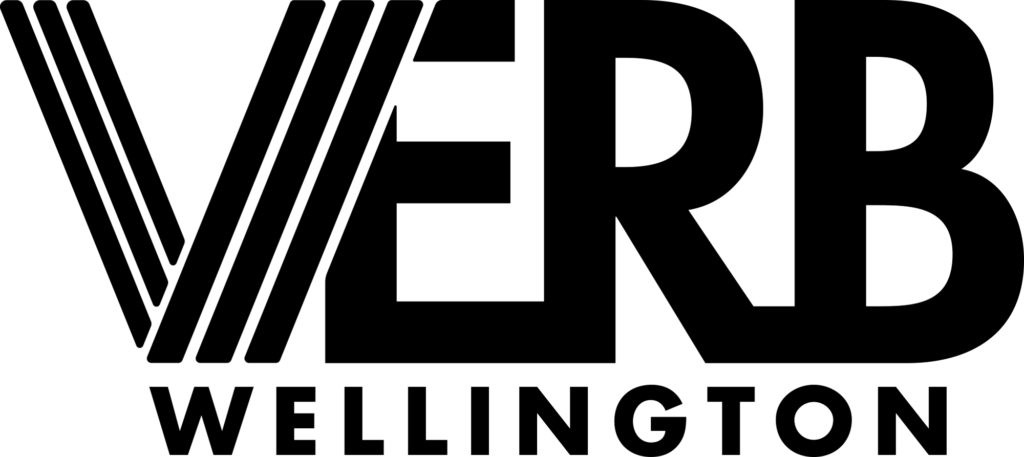.
For the second instalment of our essay series ‘Art History Is a Mother’, in partnership with Verb Wellington, we hear from writer Rosabel Tan, the Director of Satellites and the Founding Editor of the arts-and-culture website The Pantograph Punch. Tan discusses the inception of Satellites, a series of events, exhibitions, and encounters exploring the experience of the Asian diaspora in Aotearoa.
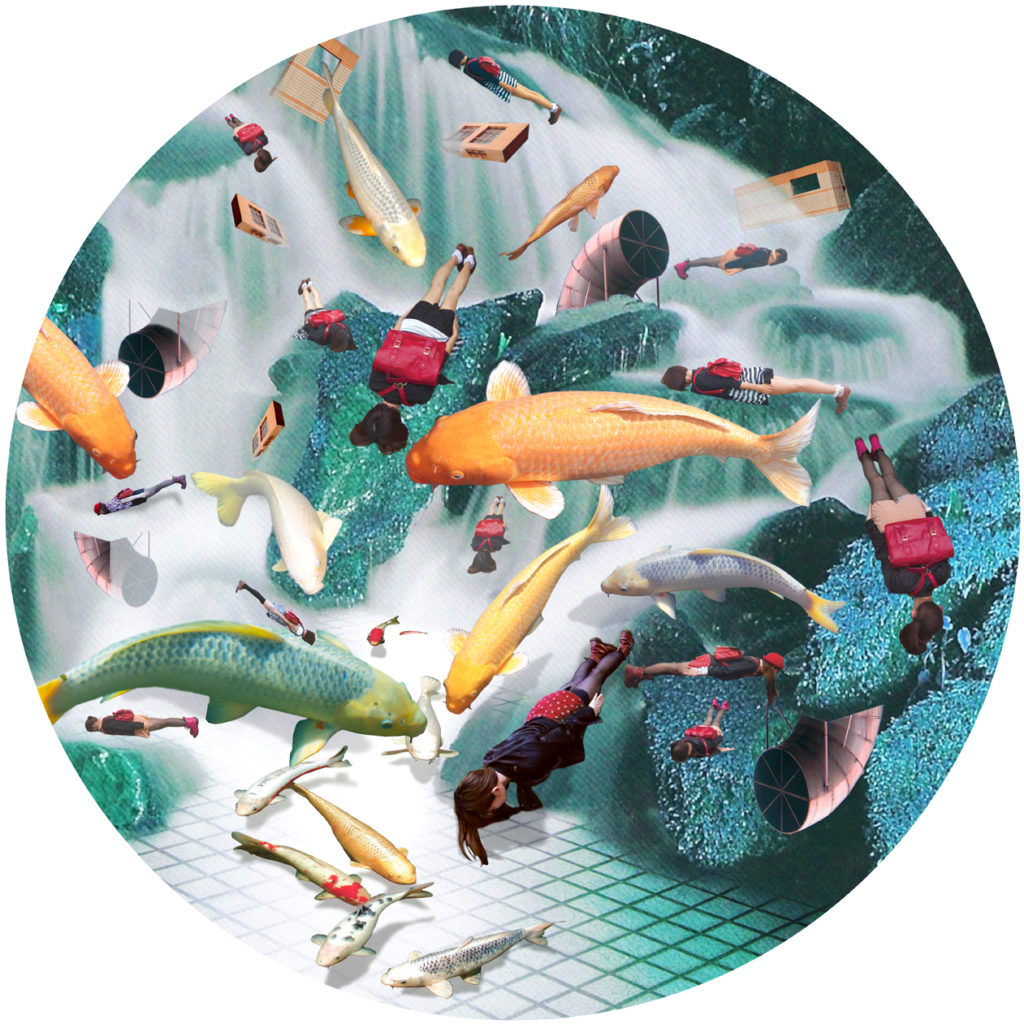
.
Some ghosts we inherit. Mine have come from lost bloodlines: I can trace my whānau back two generations, to a detective with a pet monkey and a solo mother who left her kids when they were young. Beyond that, I’m not sure.
Our ghosts shape us whether we know it or not, and mine have shaped my career. I used to say that everything I do is an act of translation—between people and ideas, between art and an audience—and I still think that’s true. But there’s something else too, and it’s scarier to name. It’s longing: for a sense of belonging, for a feeling of home.
I like to tell people that Satellites was a mistake, the result of accidental conversations. But what’s also true is that it was the culmination of my ghosts. When I was invited six years ago to design an Asian public-arts programme from a vaguely labelled ‘diversity’ budget line, here’s what I knew for sure: I wanted it to help make Tāmaki Makaurau feel like home. That meant making it for everyone, because belonging is collectively defined. It meant making it free and staged where you were, whether that was the mall, the local park, or on your phone—because while art claims to be for everybody, it isn’t. Most importantly, it meant giving the artists we worked with the freedom to be more than their ethnicity.
That was the starting point, during a time when the city was morphing so rapidly it felt like a hormonal teen having an existential crisis. The idea of weaving our faces and voices into our communities—creating space for us in our shared identity as a city—was ultimately an act of retrospective imagination: what would younger me, a baby first-gen tauiwi, have wished for?
I was eight when we moved to Aotearoa. Before then we’d been in Brisbane, and I’d spent my first few years in a Lutheran school where I was more novelty than threat, and while benevolent racism creates its own scars, it wasn’t until we moved to Howick—during the wave of immigration from Hong Kong and Taiwan in the 1990s—that I first felt that complicated mix of self-revulsion, confusion, and fear.
In Minor Feelings, Cathy Park-Hong observes how racism towards immigrants often manifests in children being treated like adults and adults like children. ‘To grow up Asian in America’, she writes, ‘is to witness the humiliation of authority figures like your parents and to learn not to depend on them: they cannot protect you.’
My parents raised me, but it was my peers who protected me, and it was art that showed me a way to survive. If that sounds poetic, it isn’t. The art that shaped me was art that refused my existence and taught me that invisible was the same word as safe.
I learned to adopt fictional identities, hoarding them in a way that would’ve made Lisa Frank proud. I begged for a lunchbox of Famous Five staples—boiled eggs and ham sandwiches—and engineered fake mysteries to solve behind the C-block toilets. The Baby-Sitters Club taught me it was cool to have an entrepreneurial spirit but because I didn’t have any friends, I just re-sold sweaty handfuls of M&M’s to my neighbours, and when I was eleven—after powering through the Sweet Valley High back catalogue—I convinced my school to start a cheerleading squad and made myself captain (so, you know, at least I was a confident loser).
It takes a long time to unlearn this type of invisibility. Ocean Vuong observes, ‘To be gorgeous you must first be seen, but to be seen allows you to be hunted.’ It’s easier to choose not being hunted.
Bravery for me was a slow act of accumulation, and one of my first touchstones was Fresh off the Boat, a not-without-its-faults sitcom that reframed the parts of my childhood I’d always assumed were unique dysfunction rather than shared culture. It was astounding to see my private moments on screen—everything from power perms and school holiday DIY Kumon to the clumsy ways you try to reclaim your culture (are you even diaspora if you never wore a discount cheongsam to your school ball or contemplated getting a dumpling tattoo?)
Even now, I still have these moments of realisation. The other day, my friend Yutak made a joke that talking at the dinner table was so Western, that in any Korean household you’d eat your meal in respectful silence. It was a throwaway comment but my jaw mentally dropped. My Singaporean Peranakan family eat in silence at home too, but because of an ingrained Confucian value system—respect your elders, obey your parents, speak only when you’re spoken to—I don’t question these rituals. It’s only been through other moments, with art and with friends, that I’ve uncovered their jagged lineage.
I didn’t realise how starved I was until I saw the exact shape of my hunger. It still moves me to shocked pleasure every time I see myself in art as more than a token character, or a victim of racism—as someone who experiences inconsequential moments, general embarrassment, ugliness, desire, joy.
It’s easy to forget how important this is, and it’s still so rare that we get it. The trap effectively sets itself: give an immigrant the chance to be heard and watch them gravitate to the worst things that have happened to them (if you think I haven’t done it in this essay, get ready for the plot twist). Life has taught us where we need to start: by convincing others of our basic humanity. But when this happens time and time again, it causes an arrested development. We don’t move on to tell other stories. We become defined by our trauma. Worse, we become defined in relation to somebody else: a byproduct of white supremacy.
The most dangerous part of this is that we risk becoming too exhausted to see how we, too, are perpetuating the very structures and narratives that hurt us. The worst version of this story is not that we are never allowed our humanity, it’s that we fight for it at the expense of realising that calling Aotearoa ‘home’ means inheriting a legacy of colonisation. It means being a guest on stolen land. It means honouring Te Tiriti and supporting the ongoing fight for tino rangatiratanga.
Breaking these cycles involves gaining critical mass in a system that’s built to see you fail. It’s not impossible. It’s just hard. Part of the challenge is the way art privileges the voices of those who can afford to work for very little money, especially in the emerging phase of their careers. But the real issue is not capitalism or classism in isolation. It’s that the most powerful decisions are usually made by—and for—people who are not us, whose hunger is not ours, and who are happily sustained on the spectacle of other people’s suffering.
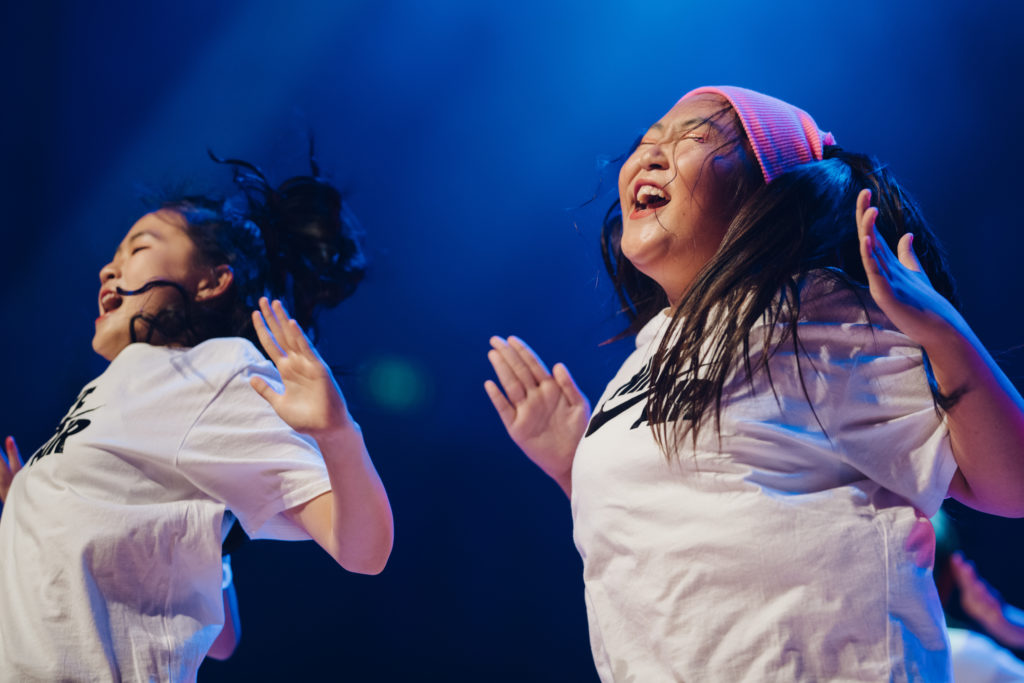
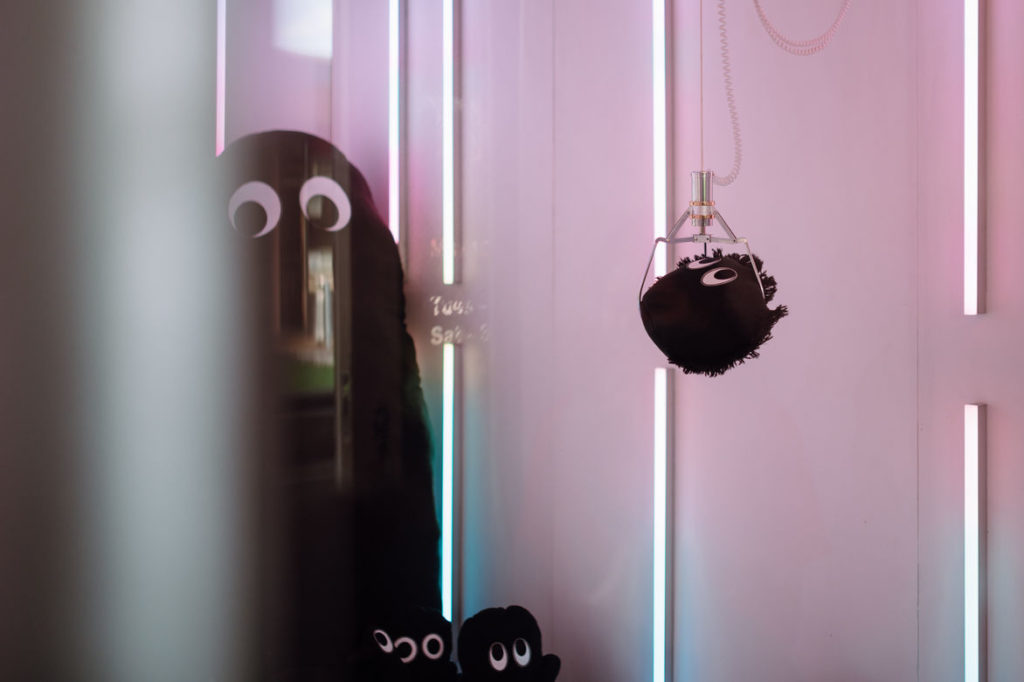
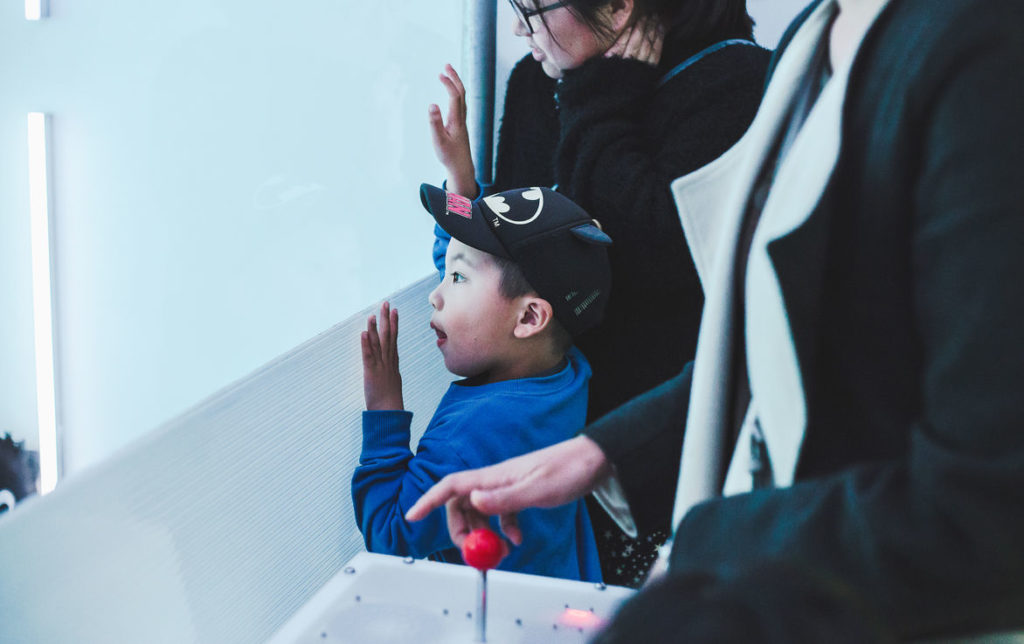
.
Over the years, I’ve learned how to work outside of these structures, and some days it feels too good to be true. I’m proud of the work that Satellites has done: the time we turned an empty shop into a giant claw machine, or when we transformed an old vending machine into a holographic obelisk that prescribes art and poetry to match your mood. I get giddy seeing the kids at our K-Pop shows and feeling the warmth of nostalgia at our breakfast events. But it can be dangerous, too, to work this way too often. It’s easy to forget the world. When artists tell me it’s a relief not to have to explain themselves, when a stranger thanks us for creating space—those are double-edged moments. I feel grateful, but I don’t want to. I don’t want to celebrate the bare minimum.
But then there are days when even the bare minimum feels out of reach. One of the hardest moments we had was after March 15. We’d been working with theatre-maker Ahi Karunaharan to create a fake Kollywood film set that people could sneak onto as extras—to be part of a performance, to learn some choreography, or to sample some of the ‘catering’. After the terror attack, we had to ask ourselves if it was going to be safe to gather in public, only six weeks later. Were we putting people’s lives at risk by encouraging a community that includes Muslim people to gather? That was hard. Our community was hurting. And, while there’s a part of you that wants to be bold and say, We deserve a space for joy, there’s still another part of you that asks, But at what cost?
•
In Taoist and Buddhist tradition, the seventh month of the lunar calendar is Ghost Month (鬼月), which kicks off pretty chill with the gates of hell opening. During this time, our ancestors return to Earth. Some go home to be honoured by their descendants, while those without a family wander the streets, looking for food and entertainment.
We all become a ghost, but not all ghosts are made the same. When we fail to honour our ancestors, they are reborn as hungry ghosts (餓鬼): disfigured creatures yearning for unattainable nourishment. To ease their suffering, we pray for them. We name them. We offer food, art, and money. Meals will be placed on the street, public performances staged, and joss paper—fake money—is burned so they can spend it in hell (hell is capitalism in case you weren’t sure).
I am descended from hungry ghosts. They are those I cannot name. The grief I hold for them is difficult to navigate, because the past isn’t lost. It just feels hard to claim. Remembering them is another journey. But in the meantime, I have another lineage. It’s the one that has shaped me, the people whose paths have pulled me forward. Imagine a future, it says, and imagine you in it.
This lineage is Tracey Williams, the former Head of Creative Strategy at Auckland Council. She championed and took care of me in the most remarkable, radical way. I think often about all the times she asked if I needed an invoice pushed through, the times she checked I was paying myself enough, the times she gently told me I was worth more. Why is that so rare? Satellites wouldn’t exist without Tracey, and without her I wouldn’t have had such an incredible model for what care in leadership looks like.
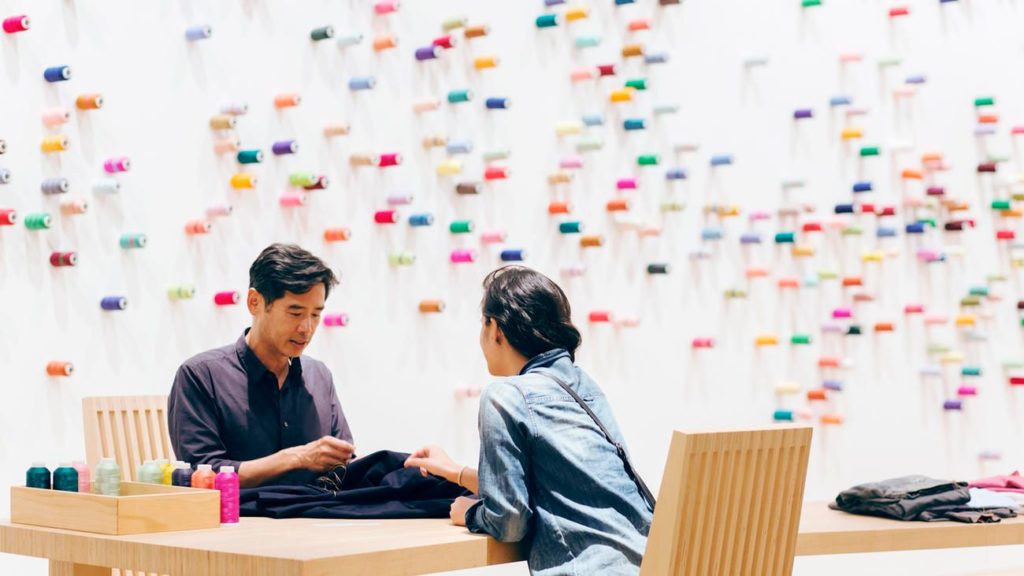
.
It’s also artist Lee Mingwei, and the afternoon I got to spend with him on the balcony at Toi o Tāmaki. It was 2016 and his survey show was opening the next day. We talked about our mothers and the ways they protected us, the significance of gift-giving as a Confucian expression of their love and power. The act of offering without ego feels ever present in Mingwei’s work. His experiences both inform and remain invisible. You wouldn’t know it, but the seed for The Mending Project starts in childhood, with his mother sewing his outfit for his first day of school, and traces its way to September 11, when he spent nearly the entire day believing his partner had died. When the two were finally reunited in their apartment, all he could think to do was gather all their socks with holes in them and start mending. So often, his work will start in places like this and morph into something else, clearing space for others and allowing for the unknowable tension when strangers collide with open hearts.
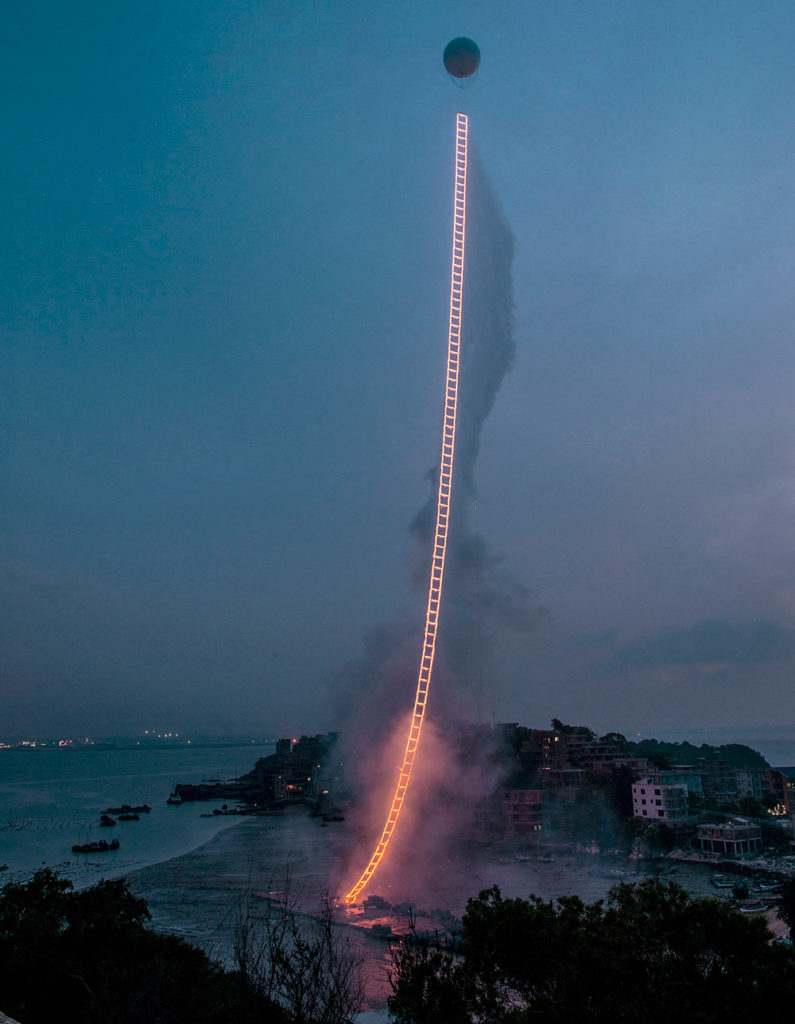
.
I’m shaped by the violently beautiful cosmic energy of Cai Guo-Qiang, and in particular Sky Ladder (2015), 500 metres of explosives illuminating a pathway to the sky, a fleeting connection from the Earth to the unseen, to our ancestors and our many destinies. It took him twenty years to get it right. He kept failing, kept trying. Sky Ladder is the difficult act of enduring conviction, of finding a way to retain hope.
The people I most want to honour, however, are my peers. So much has changed over the past five years that if I were to create Satellites now, I think I’d be able to make it more for my community, not the city writ large. If you’d proposed this when I started, I would have said, It’s not possible. We’re not there yet. Don’t get me wrong; we’re still not there. There are days when it’s hard not to choke on emails from institutions searching for a ‘funky Asian band’ or an ‘illustrator for Lunar New Year’ or an ‘Asian artist’ (no detail supplied). There’s that feeling again, but I am grateful—not for my inbox, but for the chorus.
I’m thankful for the thoughtful writing and curation of K. Emma Ng and Balamohan Shingade and the intelligent playfulness of Vanessa Mei Crofskey and Micheal McCabe (I think about playfulness a lot—it’s such a luxurious privilege). I’m excited by filmmaker Julie Zhu and artist Wai Ching Chan, who actively reject te ao Pākehā as a mediating lens through which to understand and honour te ao Māori, and my cold dead heart straight-up melted in Alice Canton‘s play Other [Chinese], seeing the number of bodies on the stage, the way joy can electrify a space.
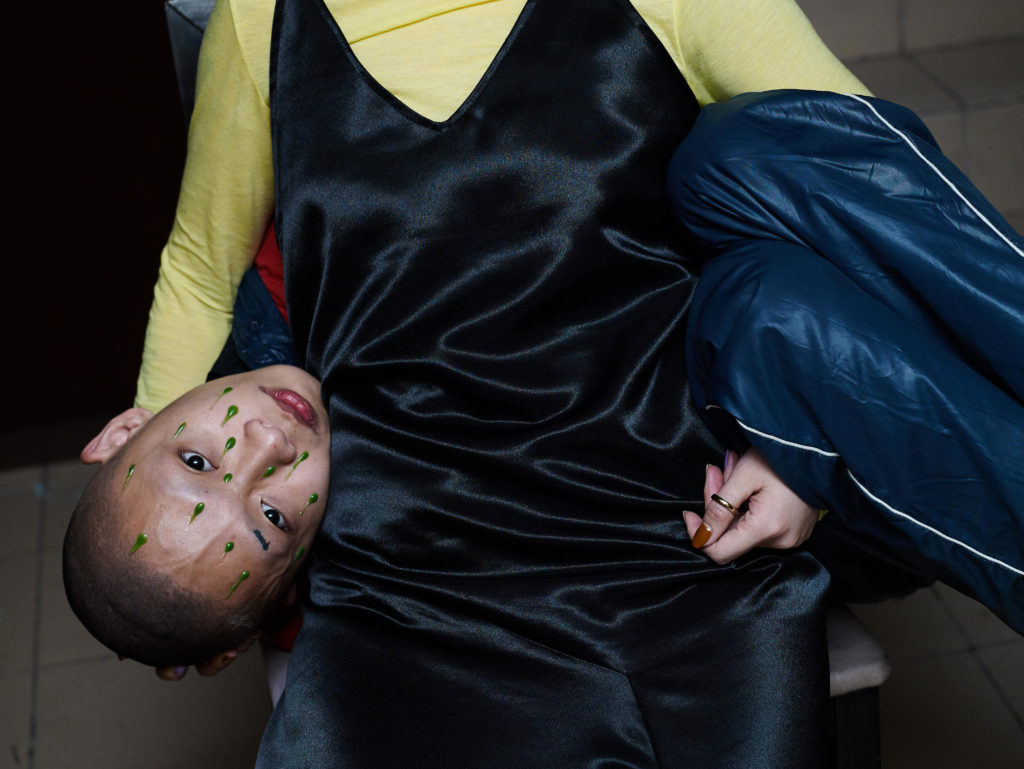
.
The controlled euphoria in Cao Xun‘s photography hypnotises me, and I’m moved by the way Rozana Lee and Areez Katki so fluidly restitch and reassemble their history. I’m entranced by the way ceramicist Ruby White and musical duo Tāl so effortlessly blend their many influences together and I’m emboldened by writer Rose Lu‘s insistence on a sprawling perspective. I’m warmed by the off-kilter nostalgia created by Kerry Ann Lee, the assured winks of Robbie Handcock and Elisabeth Pointon, and the macabre delight of Hanna Shim. Gregory Kan‘s poetry destroys me—traces emotions in a way that makes me realise American minimalism feels the same as Confucian silence—and goddamn if I’m not messaging Chris Tse every few months with some half-baked idea inspired by his poems.
This list barely scratches the surface and I feel lucky to know and work with so many others, to stand on so many shoulders. I haven’t even gotten to the collectives, and what a dazzlingly new and horrific feeling to be able to worry because there are countless people still to name. Five years ago, I would never have been able to list these many artists, these many emotions, this much joy. Can you imagine? It feels like an act of magic, and it can only bloom from here. Imagine Aotearoa, and imagine it as home. If that sounds like a prayer, it is.
—Rosabel Tan
Rosabel Tan is the founding editor of The Pantograph Punch. She holds an MA with distinction in Creative Writing and Psychology and was a recipient of the Horoeka/Lancewood Reading Grant. Her writing has been published in Sport, Hue and Cry, 1972, Metro, and The Spinoff. Earlier this year, she was a panelist in City Gallery’s Coronavirus Book Club.
.
